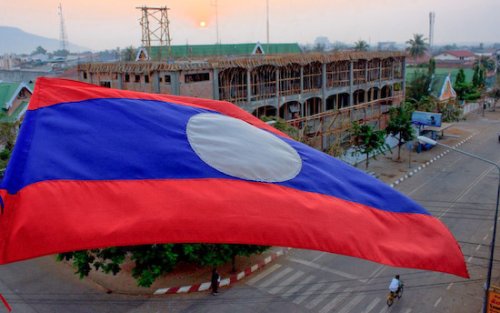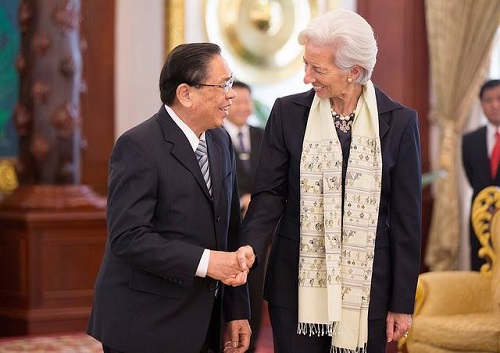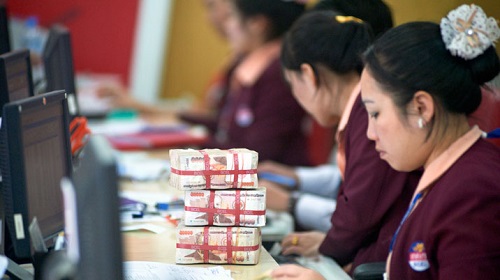Improve Business Climate To Sustain Lao Economic Growth: IMF
Laos should pay greater attention to improving the business and investment climate in the country otherwise it will have difficulty sustaining economic growth, the International Monetary Fund (IMF) has warned.
The IMF made the comments after completing Article 4 consultation with the Bank of the Lao PDR recently.
According to the IMF staff report, the Lao government has committed to improving the business climate to make it easier for business people to invest and run businesses in the country.
However the country has seen limited progress in public service delivery and the facilitation of private sector-led growth.
The IMF urged Laos to improve the public service and facilitate private sector investment and business operations so as it can sustain economic growth, as state investment projects and state enterprises alone will have not enough power to maintain economic growth.
According to a report from the Ministry of Planning and Investment, state investment accounted for only 10 percent of total investment in the country while private investment accounted for more than 50 percent and the rest came from foreign aid and bank credit.
Other key messages which the IMF recommended to Laos after consultation is that the country must enhance information exchanges and coordination among government agencies, a key factor to smoothing the way for investors and businesspeople.
A number of businesspeople have been complaining about the lack of information from the government, for example data on goods consumption and demand, which would be of use to many investment projects. The information plays an important role to help them analyse markets and establish business plans.
Laos also needs to undertake public sector financial management reform to upgrade the quality of public spending, adding that public sector spending should be prioritised toward health, education, skill training and basic infrastructure.
Laos is not only facing a lack of infrastructure to ensure connectivity with the region once the Asean economic community is formed in 2015; it is also facing a shortage of skilled workers, forcing the country to import foreign workers to meet the demands of the growing number of investment projects.
In the past, Laos focused investment only on the development of infrastructure.
In recent years, the government has begun to invest more in education and health to ensure a sustainable supply of skilled workers to meet the demands of the market.
One of the urgent issues which the Lao government must confront is the need to increase efforts to further trade liberalisation.
The government should promote institutional reform and economic competition, offering potential to make growth more productivity-driven and broader-based.
Productivity enhancement in the non-resource sector is also something the Lao government must pursue. The move would in turn improve the trade balance and strengthen the international reserves cover, which will help reinforce economic resiliency.
At present, Laos relies on the export of natural resources including mineral ores and timber.
Source: Vientiane Times




